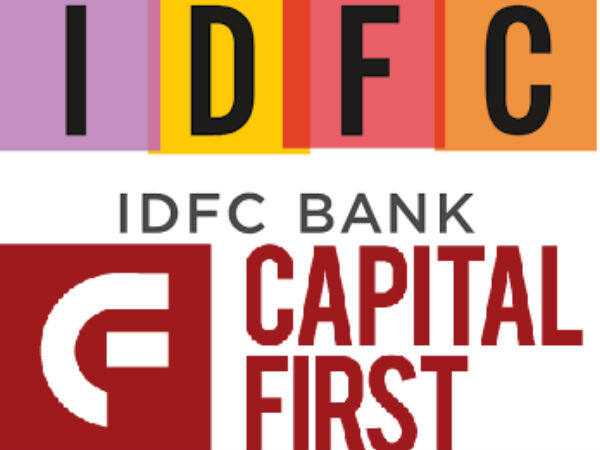Top 5 Private Sector Banks Promising Best Interest Rates On FD In 2021
[ad_1]
Read More/Less
Yes Bank Fixed Deposit
With a minimum investment of Rs 10,000 and a term ranging from 7 days to 10 years, one can open a fixed deposit account in Yes Bank. Yes Bank is presently providing the following interest rates on fixed deposits of less than Rs 2 crore, effective June 3, 2021.
| Tenure | Regular FD Rates | Senior Citizen FD Rates |
|---|---|---|
| 7 to 14 days | 3.25% | 3.75% |
| 15 to 45 days | 3.50% | 4.00% |
| 46 to 90 days | 4.00% | 4.50% |
| 3 months to less than 6 months | 4.50% | 5.00% |
| 6 months to less than 9 months | 5.00% | 5.50% |
| 9 months to less than 1 Year | 5.25% | 5.75% |
| 1 year less than 3 years | 6.00% | 6.50% |
| 3 years to less than 5 years | 6.25% | 7.00% |
| 5 years to less than equal to 10 years | 6.50% | 7.25% |
| Source: Bank Website |

RBL Bank Fixed Deposit
Fixed Deposit interest rates for Domestic, NRO, NRE, and Flexi Fixed Deposits as of July 02, 2021 are listed below.
| Tenure | Regular FD Rates | Senior Citizen FD Rates |
|---|---|---|
| 7 days to 14 days | 3.25% | 3.75% |
| 15 days to 45 days | 3.75% | 4.25% |
| 46 days to 90 days | 4.00% | 4.50% |
| 91 days to 180 days | 4.50% | 5.00% |
| 181 days to 240 days | 5.00% | 5.50% |
| 241 days to 364 days | 5.40% | 5.90% |
| 12 months to less than 24 months | 6.10% | 6.60% |
| 24 months to less than 36 months | 6.10% | 6.60% |
| 36 months to less than 60 months | 6.30% | 6.80% |
| 60 months to 60 months 1 day | 6.50% | 7.00% |
| 60 months 2 days to less than 120 months | 6.00% | 6.50% |
| 120 months to 240 months | 6.00% | 6.50% |
| Tax Savings Fixed Deposit (60 months) | 6.50% | 7.00% |
| Source: Bank Website |

DCB Bank Fixed Deposi
With effect from 15 May 2021, DCB Bank is offering the following interest rates to both regular and senior citizens.
| Tenure | Regular FD Rates | Senior Citizen FD Rates |
|---|---|---|
| 7 days to 14 days | 4.55% | 5.05% |
| 15 days to 45 days | 4.55% | 5.05% |
| 46 days to 90 days | 4.50% | 5.00% |
| 91 days to less than 6 months | 5.25% | 5.75% |
| 6 months to less than 12 months | 5.70% | 6.20% |
| 12 months to less than 15 months | 5.80% | 6.30% |
| 15 months to less than 18 months | 6.00% | 6.50% |
| 18 months to less than 700 days | 6.00% | 6.50% |
| 700 days | 6.40% | 6.90% |
| More than 700 days to less than 36 months | 6.00% | 6.50% |
| 36 months | 6.50% | 7.00% |
| More than 36 months to 60 months | 6.50% | 7.00% |
| More than 60 months to 120 months | 6.50% | 7.00% |
| Source: Bank Website |

IndusInd Bank Fixed Deposit
On deposits of less than Rs 2 crore, IndusInd Bank is offering the following interest rates as of July 23, 2021.
| Tenure | Regular FD Rates In % | Senior Citizen FD Rates In % |
|---|---|---|
| 7 days to 14 days | 2.50 | 3.00 |
| 15 days to 30 days | 2.75 | 3.25 |
| 31 days to 45 days | 3.00 | 3.50 |
| 46 days to 60 days | 3.25 | 3.75 |
| 61 days to 90 days | 3.40 | 3.90 |
| 91 days to 120 days | 3.75 | 4.25 |
| 121 days to 180 days | 4.25 | 4.75 |
| 181 days to 210 days | 4.60 | 5.10 |
| 211 days to 269 days | 4.75 | 5.25 |
| 270 days to 354 days | 5.50 | 6.00 |
| 355 days to 364 days | 5.50 | 6.00 |
| 1 year to below 1 Year 6 Months | 6.00 | 6.50 |
| 1 Year 6 Months to below 1 Year 7 Months | 6.00 | 6.50 |
| 1 Year 7 Months to below 2 Years | 6.00 | 6.50 |
| 2 years to below 2 years 6 Months | 6.00 | 6.50 |
| 2 years 6 months to below 2 years 9 Months | 6.00 | 6.50 |
| 2 years 9 months upto 3 years | 6.00 | 6.50 |
| Above 3 years upto 61 months | 6.00 | 6.50 |
| 61 months and above | 5.50 | 6.00 |
| Indus Tax Saver Scheme (5 years) | 6.00 | 6.50 |
| Source: Bank Website |

IDFC First Bank Fixed Deposit
IDFC First Bank is now offering the following card rates for domestic, NRE, and NRO deposits of less than INR 2 crores.
| Tenure | Regular FD Rates | Senior Citizen FD Rates |
|---|---|---|
| 7 – 14 days | 2.75% | 3.25% |
| 15 – 29 days | 3.00% | 3.50% |
| 30 – 45 days | 3.50% | 4.00% |
| 46 – 90 days | 4.00% | 4.50% |
| 91 – 180 days | 4.50% | 5.00% |
| 181 days – less than 1 year | 5.25% | 5.75% |
| 1 year – 2 years | 5.50% | 6.00% |
| 2 years 1 day – 3 years | 5.75% | 6.25% |
| 3 years 1 day – 5 years | 6.00% | 6.50% |
| 5 years 1 day – 10 years | 5.75% | 6.25% |
| Tax Saver Deposit (5 Years) | 5.75% | 6.25% |
| Source: Bank Website |
[ad_2]





